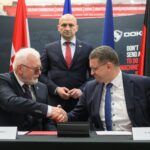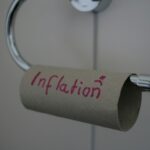It seems that older EU member states have more to gain as neighbouring Italy has contracted 12.3 billion euro, Spain 10.8 billion, and Romania 1.87 billion euro out of the European Investment Bank in 2017.
As Poslovni Dnevnik writes on the 20th of January, 2018, the European Investment Bank (EIB) approved 901 projects last year, 15 percent more than they did the year before.
78.2 billion euro has been invested in infrastructure, innovation, the environment and small and medium-sized enterprises, according to the EIB’s annual report.
The European Fund for Strategic Investments (EFSI) which is one of the pillars of Jean-Claude Juncker’s plan for Europe, the EIB gradually turned to more risky projects, ultimately reducing the risk to investors by participating in such things themselves.
By the end of December last year, the EFSI mobilised a massive 257 billion euro, which is a fund to achieve the set target of 315 billion euro worth of investments based on 21 billion euro provided.
Unfortunately, Croatia isn’t in much of a position, at least currently, to boast of its brilliant results: out of the mentioned 78 billion euro of approved projects, 70 billion refers to European Union member states, of which 590 million euro is spent on the Republic of Croatia, amounting to 1.22 percent of domestic GDP.
Record numbers were contracted by large (and mostly older members); Italy 12.3 billion euro, followed by Spain and France with 10.8 billion and 8.6 billion euro. Romania has withdrawn 1.87 billion euro, the Czech Republic 1.16 billion, Hungary 770 million, and the worst is neighbouring Slovenia, with just 60 million euro.
The fact that the majority of the older members have managed to reap the most benefits from European money clearly points to the fact that there is still a lot of work ahead for the newer members of the 28 member European project.
”Entrepreneurs don’t know, nor do they have to know how the EIB or EFSI works”, said Vice President of the Commission Jyrki Katainen back in October last year.
The best results achieved by members who are established by specialised agencies or through individuals as a link between the private sector and the EFSI.
“The only thing investors need to know is the EIB’s local phone number,” Katainen stated.







